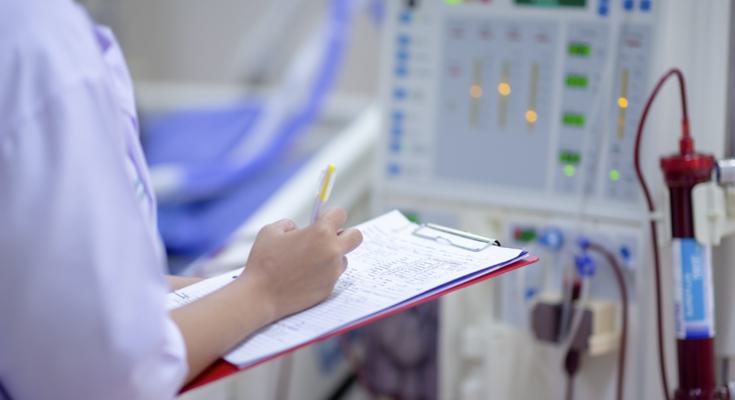By Brandon Moseley
On Thursday, the Alabama Department of Public Health reported that total COVID-19 deaths in the state has risen to 15,101. That is more than 52% of reported deaths that occurred in 2021.
Public health officials are blaming vaccine resistance for the continuing loss of life in the ongoing global pandemic.
To this point, 811,511 Alabamians have been diagnosed with the coronavirus (SARS-CoV-2), the virus that causes the condition COVID-19. According to the Department of Health, many more likely contracted mild cases and were never diagnosed and do not know with any certainty that they had the virus. The state has had 4,296 new cases diagnosed in just the past week, a dramatic decrease from last month when the number of cases was four to five times higher. The return of Alabamians attending football games did not result in the surge that some officials had feared. More than 81% of COVID-19 deaths have occurred in persons age 65 and older.
Currently, there are 815 Alabamians hospitalized with complications from COVID-19. That is down dramatically from August when almost three thousand were filling up hospital intensive care wards with the virus. Many of those were on ventilators. Hospitalizations in Alabama peaked on September 1, 2021, at 2,890. Friday's figure of 815 hospitalized is a 72% decrease in just the past six weeks and both new diagnoses and hospitalizations are trending down.
The 815 Alabamians hospitalized is the lowest number ADPH has reported since July 24, when 787 cases were reported.
COVID-19 was first identified in hospitals in Wuhan City, Hubei Province, China in late 2019. Coronaviruses are a large family of viruses that typically produce just colds and very minor illnesses. SARS-CoV-2 is the second SARS type strain to appear in China in the last 20 years. The first stayed confined to Asia and burned out. China had been doing a lot of research into the threat of coronaviruses in the wake of the SARS outbreak. The second quickly went global. The first cases identified in the USA were in travelers from China. The first positive test for coronavirus in the state of Alabama was reported on March 24, 2020. The first COVID-19 death soon followed.
The state of Alabama has experienced three major surges in cases. The first spike in cases was July and August of 2020, before the vaccine was available and before doctors had any agreed-upon protocols on how to deal with the exotic new virus. Coronavirus cases increased dramatically in Alabama in November, December, and January, followed by the inevitable spikes in hospitalizations and deaths. New cases began to decline in February and continued trending down all the way into June, dropping down to as low as 190 new cases per day in June. Then as the Delta variant spread to Alabama cases began rising rapidly. The state is now in its third period of decreasing new cases.
Pfizer, Moderna, and Johnson & Johnson all have COVID-19 vaccines that have received emergency approvals from the U.S. Food and Drug Administration. The Pfizer vaccine now has a booster shot available for those who were vaccinated more than six months ago. The other two vaccines have also applied to the FDA for emergency approval of a booster. The vaccines are free to anyone 12 years and older and are widely available from pharmacies and healthcare providers.
The vaccine is not 100% effective and you can still contract and spread the coronavirus. However, most of the hospitalizations and deaths from COVID-19 are reportedly among the unvaccinated. There are some potential side effects to the vaccines.
Coronavirus testing is widely available across Alabama, and everyone is urged to not hesitate to get tested. Early diagnosis allows you to isolate yourself to limit the spread of the virus and offers more treatment options.
There are also some therapeutic treatments available, but most of them are more effective when given early. Monoclonal antibodies, Remdesivir, hydroxychloroquine, ivermectin, dexamethasone (in more advanced cases) have all been used by doctors to treat COVID-19 patients with mixed results. Consult with your doctor before beginning any COVID-19 treatment regimen.
To this point, 741,893 Americans have died from COVID-19 and 4,899,166 people globally have perished in the global pandemic.










